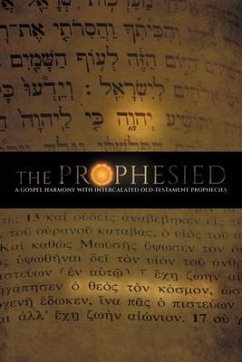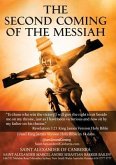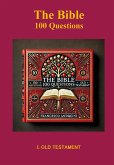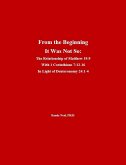A 'gospel harmony' is a private compilation of gospels. The writer of a gospel harmony is like a disc-jockey who presents undistorted music fragments: he chooses his own order of presentation, which may differ from the composer's, but the music fragments themselves are unaltered. Intercalated quotes of the Old Testament prophesy the events described in the selected gospel fragment. Readers unacquainted with prophecies are usually disappointed: "Is this supposed to be a prophecy?" Conceded: Prophets never wrote, " Then and there, the Messiah will do this and that." Worse, in most cases they wrote neither when, nor where, nor who. So what did they write? A treatise on that subject requires at least as many pages as covered by the prophecies themselves. Hence, the idea of this gospel harmony is to simply present those prophecies, and let the reader infer how they 'work', guided by many explanatory footnotes and nine appendices. The latter deal with academic difficulties in typical Christian catechesis.
In judging messianic prophecies, one should consider them all together. In any book, one can find a sentence that can be interpreted messianically. Finding two such sentences is more difficult. Finding hundreds of them, in a single book as is the Old Testament: That defies all rules of statistics.
Messianic prophecies have traditionally been difficult to understand. In Jesus' time, the only people who at times understood them were Scribes and Pharisees. The first reason for the enigmatic character of prophecies is the profound chasm between triumphant and ignominious ones: In some prophecies, the Messiah appears as a triumphant King, whose reign lasts forever; while in others, he appears like someone profoundly ridiculed and despised. The second reason is related to the nature of the Messiah: Is he an ordinary human being, who suffers at the hand of his enemies and delights in friendship; or is he God, who decides on heaven and hell? A third reason is related to the authors: Most of the prophets were lone wolves, at least quite molested, and sometimes even executed for blasphemy. Are these the kind of witnesses, whose credentials one would praise? The only exceptions are Moses and David; but Elijah, for example, had to fight against hundreds of unanimous prophets allied against him. It is quite miraculous in itself that the writings of just these prophets ended up in the Jewish biblical canon.
Of all puzzles, the biblical prophecies have a special charm, which will soon captivate the reader.
In judging messianic prophecies, one should consider them all together. In any book, one can find a sentence that can be interpreted messianically. Finding two such sentences is more difficult. Finding hundreds of them, in a single book as is the Old Testament: That defies all rules of statistics.
Messianic prophecies have traditionally been difficult to understand. In Jesus' time, the only people who at times understood them were Scribes and Pharisees. The first reason for the enigmatic character of prophecies is the profound chasm between triumphant and ignominious ones: In some prophecies, the Messiah appears as a triumphant King, whose reign lasts forever; while in others, he appears like someone profoundly ridiculed and despised. The second reason is related to the nature of the Messiah: Is he an ordinary human being, who suffers at the hand of his enemies and delights in friendship; or is he God, who decides on heaven and hell? A third reason is related to the authors: Most of the prophets were lone wolves, at least quite molested, and sometimes even executed for blasphemy. Are these the kind of witnesses, whose credentials one would praise? The only exceptions are Moses and David; but Elijah, for example, had to fight against hundreds of unanimous prophets allied against him. It is quite miraculous in itself that the writings of just these prophets ended up in the Jewish biblical canon.
Of all puzzles, the biblical prophecies have a special charm, which will soon captivate the reader.
Dieser Download kann aus rechtlichen Gründen nur mit Rechnungsadresse in A, D ausgeliefert werden.









